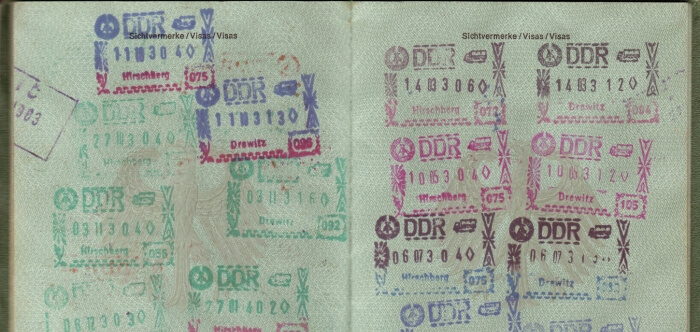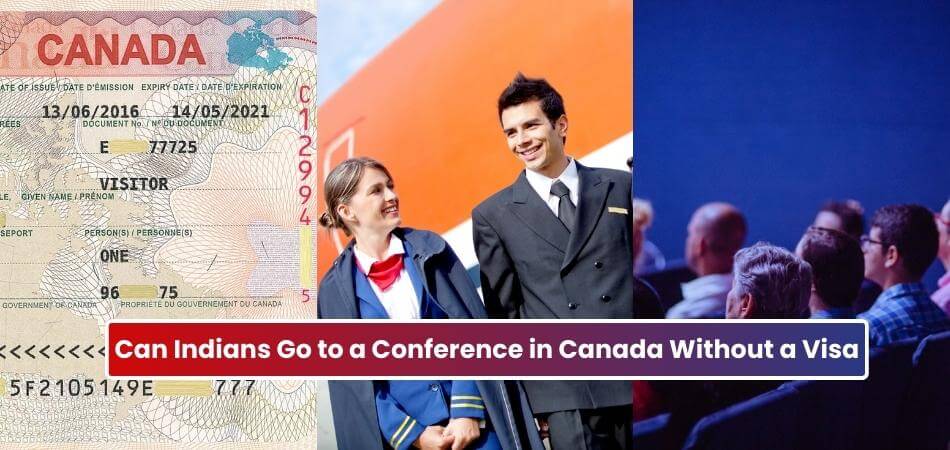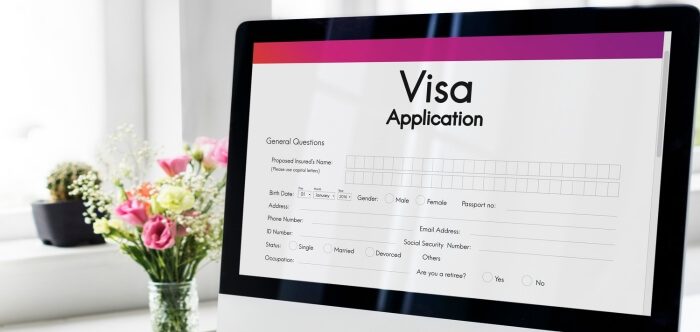Are you considering attending a conference in the picturesque landscapes of Canada? While the idea is certainly enticing, there are crucial travel details you should be familiar with before packing your bags. The burning question, can Indians Go to a Conference in Canada without a Visa? is often at the forefront of many travelers’ minds.
Unfortunately, no, Indians must secure a visa to attend a conference in Canada. They can apply for a Temporary Resident Visa or an Electronic Travel Authorization, depending on eligibility. Always check the latest regulations before planning travel.
However, the maze of rules doesn’t have to be daunting. Dive deep into our comprehensive guide, where we simplify this process for you.
Historical Overview of a Visa
Visas have long stood as official documents permitting international travel. They emerged as a means to control and monitor movements across borders, deeply rooted in ancient civilizations. For instance, in medieval times, monarchs would issue travel documents to protect and authenticate the identity of their travelers.

As global trade and exploration expanded during the Renaissance, the importance of visas grew concurrently. Countries wanted to protect their interests, ensure security, and manage the influx of foreigners. By the 19th and early 20th centuries, formal passport and visa systems were firmly in place, shaping global migration patterns.
Technological advancements in the 20th century further revolutionized the visa process. Digitization improved efficiency, cutting down processing times, and reducing fraudulent activities. Now, many nations offer e-visas, streamlining travel and fostering international relations even more effectively.
Why Visa Is Essential for International Travel?
Traveling between nations often requires specific permissions, a key component of which is the visa. This document, while often underestimated, holds a central role in international travel, as it serves multiple pivotal functions.
Identification and Verification
A visa acts as a tool for countries to verify the traveler’s identity and purpose of visit. It ensures that the visitor has undergone a preliminary check, making entry processes smoother. For instance, attending a global conference in Canada 2024 would require securing a visa, ensuring that the traveler has met all necessary criteria to enter the country for the event.
Regulating Entry and Duration
Visas dictate the period a traveler can stay and sometimes, the activities they can engage in. By setting boundaries, countries can monitor and manage the inflow and outflow of foreign nationals. This controlled approach aids in maintaining security and order.
Supporting Economic Growth
Tourist visas can directly contribute to a country’s economy. Visitors often spend on accommodation, food, entertainment, and souvenirs. This influx of foreign currency can boost local businesses and promote tourism sectors.
Protection of National Resources
Certain countries possess unique ecosystems or heritage sites. By regulating the number of tourists through visas, these nations can protect sensitive areas. It ensures sustainable tourism without overburdening delicate environments.
Facilitating Diplomatic Relations
Visas can be leveraged as tools of diplomacy between countries. They can be relaxed to promote trade and tourism or foster closer ties. Conversely, restrictions can be imposed as a measure during political tensions.
In summary, while visas might seem like just another document, they play an integral role in shaping global travel dynamics. As you venture beyond borders, understanding the essence of this permit can make your journey more informed and seamless.
Can Indians Go to a Conference in Canada Without a Visa?
Attending an international conference requires knowing certain travel regulations. Can Indians go to a conference in Canada without a visa? is one question that comes up regularly. This question highlights the complexities involved in international professional relationships.
Sadly, Indians cannot attend a conference in Canada without obtaining a visa first. To participate in such events, they must secure the appropriate permissions. A Temporary Resident Visa (TRV) or an Electronic Travel Authorization (eTA) could be the potential pathways, depending on various factors including the traveler’s history and purpose.
Acquiring this visa isn’t just about attending a conference. It is Canada’s method of ensuring the traveler’s intentions align with their stated purpose. By obtaining this visa, attendees demonstrate they have met Canada’s entry requirements and have a genuine reason for their visit.
However, visa policies can evolve, influenced by diplomatic relations, security concerns, and other geopolitical factors. Therefore, it’s always wise for travelers, including Indians planning a Canadian conference trip, to consult the latest guidelines. This proactive approach ensures a smooth and hassle-free international journey, allowing participants to focus on the event itself.
Let’s dive deeper into the reasons why Indian nationals need a visa to attend conferences or any short-term events in Canada.
Visa Requirements for Indian Nationals
Canada, like many countries, has a list of visa-exempt countries whose citizens can enter without a visa for short stays. However, India is not on this list. This means that any Indian citizen, regardless of the purpose of their visit, must apply for a visa before entering Canada, even if it’s just for a short conference or business meeting.
In addition to meeting all the necessary conditions, applicants should be aware of the cost of Canada Conference Visa for Indians, which includes the visa application fee and, in many cases, biometric fees.
The visa requirement allows Canadian immigration authorities to screen individuals before they enter the country, ensuring that they meet the necessary conditions. This screening process helps reduce the risk of individuals overstaying their visas or working illegally during their visit.
Ensuring Compliance with Immigration Laws
One of the primary reasons for requiring visas is to ensure compliance with Canadian immigration laws. When an individual applies for a visa, they must demonstrate that they intend to leave the country once their business in Canada, such as attending a conference, is concluded.
For this, applicants must provide documents proving they have strong ties to their home country, such as family, employment, or property. This helps assure Canadian authorities that the visitor is not likely to overstay or immigrate illegally.
Additionally, the visa process ensures that the applicant has enough funds to support themselves during their stay in Canada. This prevents cases where individuals might face financial difficulties during their trip, potentially leading to legal or social issues.
Security Concerns
Another crucial reason for requiring visas is to manage security risks. By requiring a visa, Canada can run background checks on applicants to ensure they do not pose a security threat.
Visa applications require personal information, including fingerprints and photographs (biometrics), which are cross-checked with international criminal and security databases. This process helps Canada identify any individuals who might be involved in criminal activities, thus protecting the safety of its citizens and maintaining the integrity of its immigration system.
For Indian nationals, this means that they must provide accurate information during their visa application process to pass this screening. While it may seem like an extra step, it helps maintain security for all.
Economic Control
Visa requirements also allow the Canadian government to control the flow of visitors, including business travelers attending conferences.
By regulating the number of visas issued, Canada can manage its economy, ensuring that those who enter the country contribute positively, whether by attending professional events, conferences, or engaging in business activities that foster economic growth.
Visitors who apply for a visa must demonstrate their purpose for visiting Canada, such as an invitation to attend a conference. This ensures that only legitimate visitors are allowed entry, which is particularly important for high-profile events or international conferences.
Consistency in Immigration Rules
Canada’s visa policy for Indians reflects the broader consistency in its immigration laws. As Indian citizens are not visa-exempt, this policy ensures fairness and uniformity in handling international visitors.
While other countries may have more relaxed policies for short-term stays, Canada follows a comprehensive visa application process for all non-exempt countries, including India.
Indian nationals cannot attend a conference in Canada without a visa due to Canada’s strict immigration, security, and economic policies. The visa process ensures that visitors comply with Canadian laws, have the financial means to support themselves during their stay, and do not pose any security risks. While applying for a visa may require extra effort and time, it’s an essential step for ensuring a smooth and hassle-free trip to Canada.
How to Apply for a Canadian Conference Visa From India?
If you’re an Indian planning to attend a conference in Canada, you’ll likely need a visa. Managing the visa application process can be challenging, but this concise guide will help you through it seamlessly. Here’s a step-by-step breakdown of what you need to do to obtain your Canadian conference visa.
Step-1. Determine Your Visa Type:
Before starting the application process, ascertain the type of visa you need. For conference attendees, a Temporary Resident Visa (TRV) is generally apt. It’s essential to clarify your purpose of visit to select the right visa category.
Step-2. Gather Necessary Documents:
Documentation is vital for visa approval. Prepare essential papers like a valid passport, conference invitation letter, travel itinerary, proof of funds, and any other specified documents. Double-check to ensure completeness.
Step-3. Complete the Application Form:
Download the appropriate visa application form from the official Canadian immigration website. Fill in all the required details accurately, ensuring there’s consistency with the provided documents. Any discrepancies can lead to delays or rejections.
Step-4. Pay the Application Fee:
There’s a non-refundable visa processing fee. Make the payment using the available methods, often through bank drafts or online transactions. Keep a receipt or proof of payment for future reference.
Step-5. Submit Biometrics (If Required):
Canada might require visa applicants to provide biometrics, which includes fingerprints and photographs. Visit an authorized biometric collection service point in India to fulfill this requirement, if applicable.
Step-6. Submit the Visa Application:
Once everything is in place, submit your application either online or at a Visa Application Center (VAC) in India. Ensure you have attached all the necessary documents and followed the guidelines.
Step-7. Wait and Monitor the Application Status:
After submission, monitor the application status online. When approved, you’ll receive instructions on passport submission and visa stamping. Always be prompt in responding to any additional requests or clarifications.
With these steps in mind, applying for a Canadian conference visa from India can be a hassle-free experience. Remember, thorough preparation and adherence to guidelines are the keys to a successful application.
Tips for Hassel-Free Conference Visa Application from India
Securing a conference visa from India demands attention to detail and a strategic approach. Here are some invaluable tips to streamline your application process, ensuring a hassle-free experience.
Start Early
The visa processing time can be unpredictable. Beginning the application process for Canadian conference visa from India well in advance can save you from last-minute panic. It provides ample time for corrections or addressing unforeseen issues that might arise along the way.
Ensure Accurate Documentation
Every document you submit must be authentic and up-to-date. Cross-check details like passport validity and invitation letters. Providing consistent and verifiable information is paramount for visa approval.
Understand the Guidelines
Before diving into the application, study the guidelines thoroughly. The Canadian immigration website offers comprehensive information. Adhering strictly to the outlined norms can prevent application rejections or delays.
Prepare for the Interview
Some visa applications might necessitate an interview. Familiarize yourself with potential questions related to your trip, accommodation, and conference agenda. Confidence and clarity during the interview can make a significant difference.
Maintain Financial Transparency
One common reason for visa denials is doubts regarding financial stability. Clearly show your ability to fund the trip, through bank statements or salary slips. Providing clear, organized financial records can allay any concerns.
Stay Updated on Policy Changes
Visa policies can undergo changes, influenced by diplomatic relations or other factors. Regularly check the official website or trusted news sources. Being informed ensures you aren’t caught off-guard by any sudden modifications.
To ensure a seamless visa application procedure, always remember that careful preparation and being up to date on regulations are essential. You can enjoy a positive conference experience in Canada without any problems relating to obtaining a visa if you heed this advice.
Frequently Asked Questions
What type of visa is required for Indians to attend a conference in Canada?
Indians attending a conference in Canada typically need a Temporary Resident Visa (TRV), often referred to as a visitor visa. This visa allows short-term stays for purposes like conferences, business meetings, or tourism. Be sure to apply early and gather all necessary documents.
How long does it take for an Indian to get a Canadian visa for a conference?
It typically takes around 15 to 30 days for an Indian to get a Canadian visa for a conference, depending on the application volume and processing time. To avoid delays, it’s best to apply well in advance and ensure all documents are accurate and complete.
Are there any exemptions for Indians attending short-term conferences in Canada without a visa?
No, Indian citizens are not exempt from visa requirements when attending short-term conferences in Canada. All Indian nationals must apply for and obtain a visa before traveling, regardless of the event’s duration. It’s essential to complete the visa process well in advance.
Can an Indian national attend a virtual conference in Canada without a visa?
Yes, an Indian national can attend a virtual conference hosted in Canada without needing a visa. Since the event is online, there’s no physical travel involved, and therefore, no visa is required. It’s a convenient option for global participation without the need for travel documentation.
Can Indians travel to Canada with an eTA for a conference instead of a visa?
No, Indians cannot travel to Canada with an eTA for a conference. Indian citizens require a visa to enter Canada for any purpose, including conferences. The eTA is only available to citizens of visa-exempt countries. Ensure to apply for a proper visa before traveling.
Bottom Line
International travel, especially for specialized purposes like conferences, often brings visa requirements to the forefront of planning. Can Indians go to a conference in Canada without a visa? is a question that emphasizes the importance of being well-versed in immigration policies. As clarified, Indians must obtain a visa to attend conferences in Canada.
The rich history of visas and their pivotal role in shaping global movements provides context to such regulations. Tracing back to ancient civilizations, visas have always acted as gatekeepers, ensuring the right people cross borders for the right reasons. Today, their significance has only amplified as global interactions have increased.
Understanding the visa application process, and the intricacies involved, paves the way for a smoother international experience. As the dynamics of international relations and visa policies keep evolving, being informed ensures travelers are always prepared, facilitating successful and hassle-free international endeavors.







